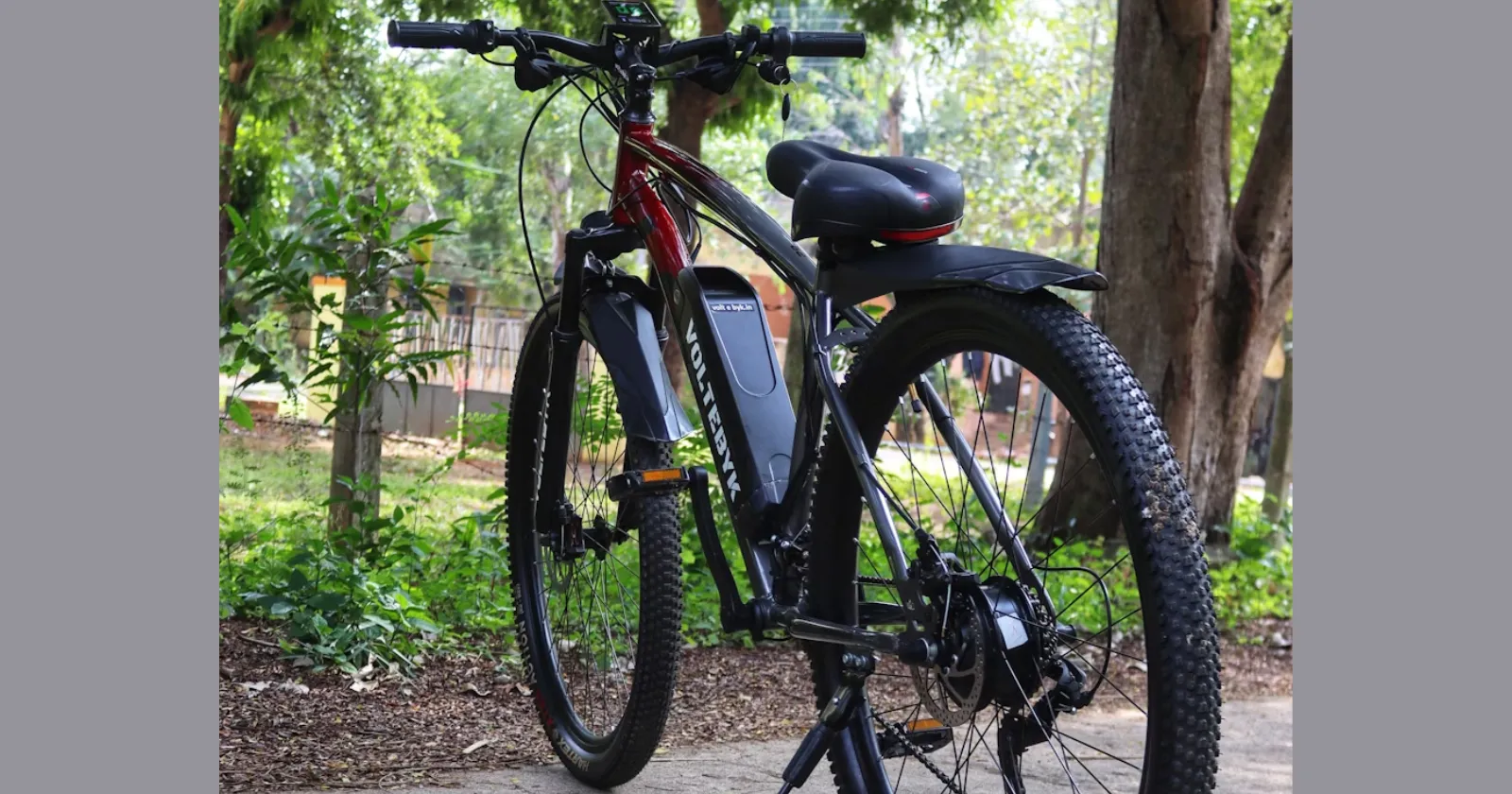
The "first ride" for many teenagers is transitioning from petrol to pedal-assist, chosen not for speed but for safety, health and independence within parental comfort. (Image: Unsplash)

Share Post

The "first ride" for many teenagers is transitioning from petrol to pedal-assist, chosen not for speed but for safety, health and independence within parental comfort. (Image: Unsplash)
India's next electric-mobility narrative isn't emerging in office car parks or delivery fleets, but it is materialising inside Indian homes. According to EMotorad's 2025 consumer insights study, approximately 60 per cent of its e-cycle sales this year were parent-initiated purchases for children, with the kids and youth segment growing more than 80 per cent year-on-year (YoY).
Even with electric cycles still accounting for only an estimated 5-6 per cent of India's overall bicycle market, this represents a decisive cultural shift: the "first ride" for many teenagers is transitioning from petrol to pedal-assist, chosen not for speed but for safety, health and independence within parental comfort.
The motivations are lifestyle first, utility second. In EMotorad's audience survey, a large majority of parents pointed "riding together" as a bonding activity and reduced screen time as a principal reason to buy; over seven in ten ranked safety and brand trust above speed or even cost.
This reflects a reframing of mobility within the family: an e-cycle is not a cheaper scooter, it is a tool to encourage outdoor time, fitness, and confident but controlled movement for adolescents.
"It is the emergence of what can be called emotional mobility, i.e. mobility as a way to shape behaviour and routine, not merely to reach a destination", Kunal Gupta, Co-founder & CEO, EMotorad, said in a statement.
To understand why this choice resonates, consider everyday distances. For school-going children and teenagers in Indian cities, most regular trips fall within the short-distance band. National urban transport guidance from the Ministry of Housing and Urban Affairs (MoHUA) consistently positions walking and cycling as the backbone for short trips and urges cities to plan around them.
When routine journeys cluster within a few kilometres, a well-equipped e-cycle becomes the "just right" mode: fast enough, simple to park, range-anxiety free, and visible to parents and neighbours.
Household mathematics are reinforcing the lifestyle instinct. India's oil demand remains structurally high and is met largely through imports; official snapshots from the Petroleum Planning & Analysis Cell (PPAC) show crude imports and petroleum product use staying elevated across recent months, underscoring continued exposure to global price volatility.
For families funding multiple short rides each day, that volatility converts directly into recurring petrol spend. Replacing the two-kilometre tuition run with home-charged e-cycling is therefore not only healthier, it is fiscally sensible.
National EV policy to date has rightly focused on big oil-saving and pollution-cutting levers: buses, three-wheelers, ride-hailing fleets, and adult two-wheelers. Under Phase II of FAME (Faster Adoption and Manufacturing of Electric Vehicles), the Government approved an outlay of ₹10,000 crore to support categories like e-buses, e-3-wheelers, e-4-wheelers, and e-2-wheelers for commuters, with most funds earmarked for demand incentives.
That framework accelerated mainstream electrification -- but it did not anticipate parents buying EVs for under-five-kilometre youth commutes. The emergence of a parent-led e-cycle boom therefore exposes a gap and, in doing so, creates an opportunity to complement the national focus with light-EV measures that explicitly address short student trips.
Whilst central schemes evolve, city and UT governments are already experimenting. Chandigarh's administration, through its nodal agency CREST, has operationalised incentives for e-bicycles, empanelled vendors, and issued standard operating procedures for subsidy release -- practical steps that lower friction for families and signal civic acceptance of e-cycling for short trips.
For decades, a teenager's first motorised vehicle in India carried a status vocabulary of speed and power. In a parent-led market, that vocabulary is being rewritten around stability, braking, visibility, frame integrity, and dependable after-sales.
This dovetails with a broader policy environment where service quality is treated as central to public trust in EVs. As schemes like FAME have progressed, the Ministry of Heavy Industries and allied agencies have repeatedly emphasised compliance, safety, and consumer protection. For parents, "we fix it fast and keep it safe" is not marketing copy; it is the promise.
Tata Punch EV Launch Tomorrow: Features, Specs, Price Expected
Acko Drive Team 19 Feb, 2026, 6:14 PM IST
JSW Begins Independent Journey in India’s Auto Industry with CVs
Acko Drive Team 19 Feb, 2026, 5:03 PM IST
Volkswagen Tayron R-Line Launched In India, Priced At ₹46.99 Lakh
Acko Drive Team 19 Feb, 2026, 2:52 PM IST
iOS 26.4 CarPlay Public Beta Previews Video Functionality, Conversational AI Apps
Acko Drive Team 19 Feb, 2026, 2:36 PM IST
Audi SQ8 India Launch on March 17: What to expect
Acko Drive Team 19 Feb, 2026, 2:14 PM IST
Looking for a new car?
We promise the best car deals and earliest delivery!
